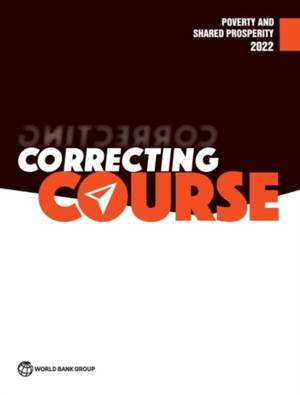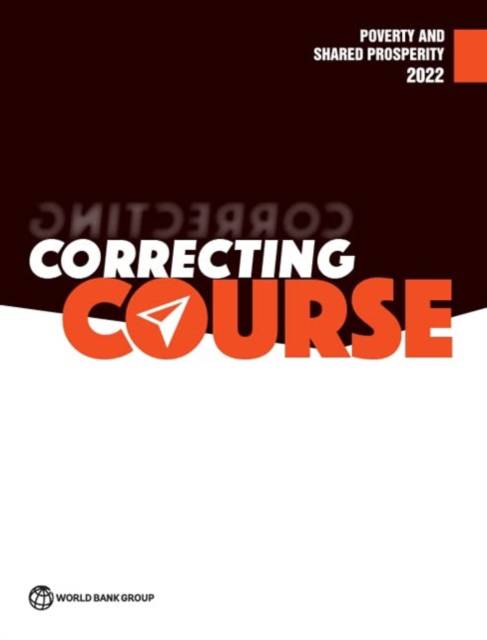
- Retrait gratuit dans votre magasin Club
- 7.000.000 titres dans notre catalogue
- Payer en toute sécurité
- Toujours un magasin près de chez vous
- Retrait gratuit dans votre magasin Club
- 7.000.0000 titres dans notre catalogue
- Payer en toute sécurité
- Toujours un magasin près de chez vous
Description
The COVID-19 pandemic triggered a pronounced setback in the fight against global poverty--likely the largest setback since World War II. Many low- and middle-income countries have yet to see a full recovery. High indebtedness in many countries has hindered a swift recovery, while rising food and energy prices--fueled in part by conflict and climate shocks--have made a return to progress on poverty reduction more challenging than ever. These setbacks have altered the trajectory of poverty reduction in large and lasting ways. The world is significantly off course on the goal of ending extreme poverty by 2030.The year 2020 also marked a historic turning point as decades of global income convergence gaveway to global divergence as the world's poorest people were hardest hit. The richest people have recovered from the pandemic at a faster pace, further exacerbating differences. These diverging fortunes between the global rich and poor ushered in the first rise in global inequality in decades. Poverty and Shared Prosperity 2022: Correcting Course provides the first comprehensive analysis of the pandemic's toll on poverty in developing countries.It identifies how governments can optimize fiscal policy to help correct course. Fiscal policies offset the impact of COVID-19 on poverty in many high-income countries, but those policies offset barely onequarter of the pandemic's impact in low-income countries and lower-middle-income countries. Improving support to households as crises continue will require reorienting protective spending away from generally regressive and inefficient subsidies and toward a direct transfer support system--a first key priority. Reorienting fiscal spending toward supporting growth is a second key priority identified by the report. Some of the highest-value public spending often pays out decades later. Amid crises, it is difficult to protect such investments, but it is essential to do so. Finally, it is not enough just to spend wisely--when additional revenue does need to be mobilized, it must be done in a way that minimizes reductions in poor people's incomes. The report highlights how exploring the underused forms of progressive taxation and increasing the efficiency of tax collection can help in this regard. Poverty and Shared Prosperity is a biennial series that reports on global trends in poverty and shared prosperity. Each report also explores a central challenge to poverty reduction and boosting shared prosperity, assessing what works well and what does not in different settings. By bringing together the latest evidence, this corporate flagship report provides a foundation for informed advocacy around ending extreme poverty and improving the lives of the poorest in every country in the world. For more information, please visit worldbank.org/poverty-and-shared-prosperity.
Spécifications
Parties prenantes
- Auteur(s) :
- Editeur:
Contenu
- Nombre de pages :
- 264
- Langue:
- Anglais
- Collection :
Caractéristiques
- EAN:
- 9781464818936
- Date de parution :
- 09-12-22
- Format:
- Livre broché
- Format numérique:
- Trade paperback (VS)
- Dimensions :
- 203 mm x 267 mm
- Poids :
- 780 g

Les avis
Nous publions uniquement les avis qui respectent les conditions requises. Consultez nos conditions pour les avis.






